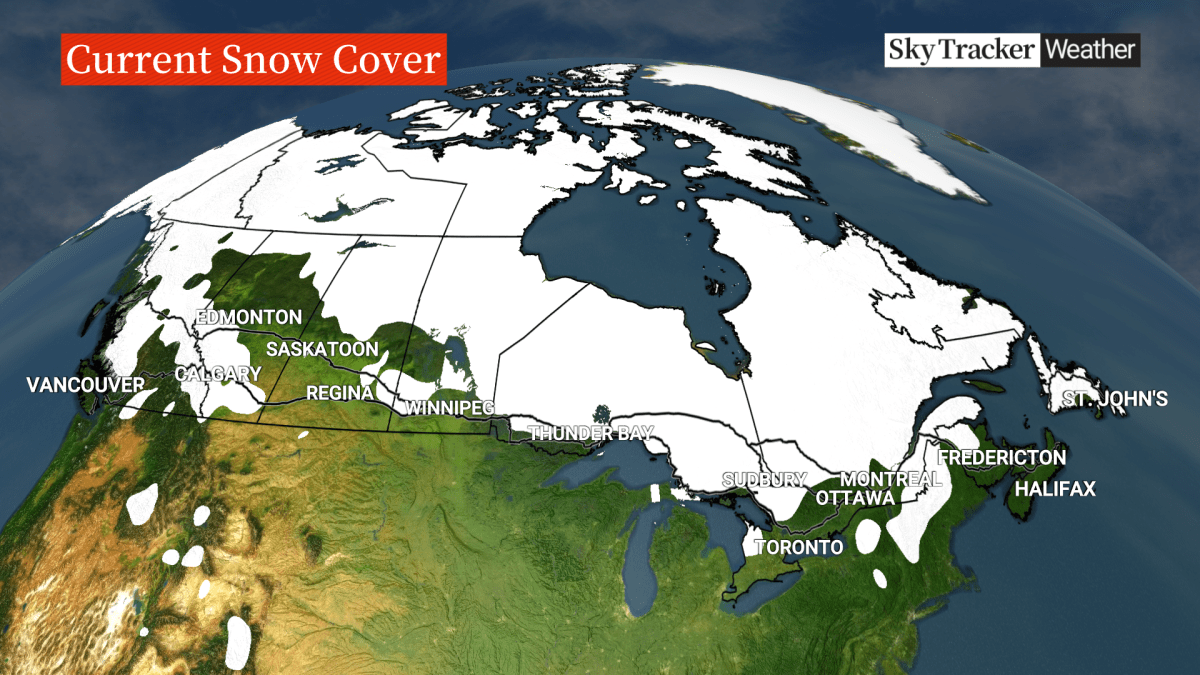After the warmest winter on record, parts of Canada are seeing an early start to the wildfire season, with experts and officials warning about increased fire activity over the spring period.

Alberta Wildfire said the province’s fire season officially kicked off on Feb. 20 – earlier than the standard start date of March 1. So far, five new active wildfires have burned in Alberta, but all of them are under control.
British Columbia has seen eight new wildfires start over 9.55 hectares of land this year and all of those are out, under control or being held, according to the BC Wildfire Service.
However, the province is aware of 90 active holdover fires from the 2023 season that “have smouldered beneath the winter snow cover.” They are all considered under control.
“Officially, fire season is upon us and earlier than in past years,” said Anabela Bonada, director of climate science at the University of Waterloo’s Intact Centre of Climate Adaptation.
The holdover fires over the winter period are an indication that this could be “another active wildfire season,” Bonada said in an interview with Global News.
A lack of significant snowpack over the winter months, above average temperatures and dry conditions have ignited an “earlier than normal” start to the wildfire season in B.C. and Alberta, according to Global News meteorologist Ross Hull.
“Despite some late-season snowfall over the spring it may still be difficult to make up for the lack of snow this winter, which led to these dry conditions,” Hull said.
Could 2024 repeat last year's record wildfire season?
Canada experienced its worst wildfire season last year, burning an unprecedented 18.5 million hectares of land.
While it’s hard to predict what this year could bring because fire behaviour is largely dependent on the weather, analysis shows that wildfire seasons in Canada are becoming longer, said Chelene Hanes, a wildland fire research scientist with the Canadian Forest Service.
“We have a lot of variability year to year, so just because we had a bad year last year doesn’t necessarily mean we’ll have another one this year,” she told Global News.
However, “there is some cause for concern because there is a lot of drought that is persisting from last season and … those drought conditions did have some role to play in what we saw last year as well.”

The El Niño climate pattern last year contributed to 2023 becoming the hottest year on record.
A weather pattern shift from El Niño to La Niña later this year could bring in some wildfire relief with the possibility of wet weather conditions on the West Coast and into Alberta, Hull said.
“If we do switch over to a La Niña pattern that could lead to at least the possibility of more moisture reaching parts of B.C. and into the Prairies,” he added.
“We’re likely not going to see exactly the same pattern as we did last year.”
B.C.’s Ministry of Forests told Global News its current forecasts indicate that the province may experience an active spring wildfire season due to persistent drought conditions.
“This activity is expected to increase if there continues to be limited precipitation over the next several weeks and months,” the ministry told Global News in an emailed statement.
Alberta Wildfire echoed that same concern, saying in a statement: “Without significant rainfall in the spring, we could see elevated wildfire danger early in the wildfire season.”
How to prepare for the wildfire season
In preparation for this year’s wildfire season, both B.C. and Alberta are enhancing their wildland firefighter recruitment and securing more aircraft, water bombers and other firefighting equipment.
Hanes said that since spring fires are largely human-caused, people can help reduce the risks by paying close attention and complying with any fire restrictions or bans in their region.
Ideally, communities should start preparing for the next wildfire season as soon as the previous one ends, Bonada said.
“The best months to prepare are the cool months when there aren’t active wildfires, when it’s relatively under control,” she said.

Fireproofing your home can also be part of your spring cleaning process.
The simplest way to do that is by removing dried debris around the house, such as in the gutters or on the roof or deck, Bonada said.
Any combustible materials, such as a wood pile, propane tanks or a barbecue grill, should be removed from within 10 metres of your home.
Vegetation, including small shrubs, should be planted at least 1.5 metres away from the foundation of the house. Fire-resistant plants are recommended.
If you have large trees, cut back branches within two metres of the ground and keep your grass cut to below 10 centimetres, Bonada advised.
Simple home upgrades can also help fire-proof your property, such as by replacing weather strips on your doors and garages. Sealing the windows can protect you from wildfire smoke.
“The absolute biggest lesson from last year is preparedness,” Bonada said. “We don’t have to wait until we’re in the fire, until literally our home, our community is burning down.”

These and other steps for homeowners and communities were laid out in a report that the University of Waterloo’s Intact Centre on Climate Adaptation published in December 2023.
Bonada, who co-authored that report, said implementing such measures can reduce the chances of your home burning down by 75 per cent.
If you are looking for more ways to fireproof your home, FireSmart Canada also offers resources and programs to help Canadians increase resilience to wildfires.
- Posters promoting ‘Steal From Loblaws Day’ are circulating. How did we get here?
- Canadian food banks are on the brink: ‘This is not a sustainable situation’
- Solar eclipse eye damage: More than 160 cases reported in Ontario, Quebec
- Video shows Ontario police sharing Trudeau’s location with protester, investigation launched





Comments